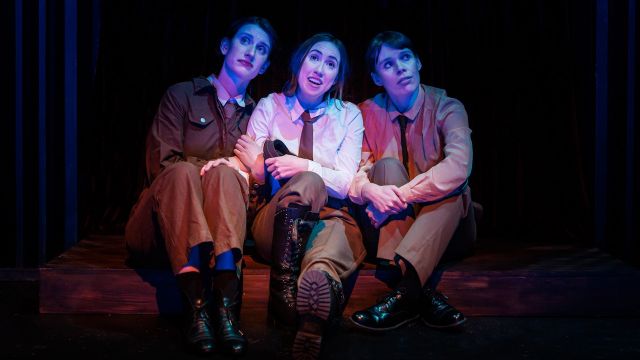Garage Girls
Here’s a spirited show about Alice Anderson (played with endearing energy by Madelaine Nunn). A motor car afficionado, Alice was a pioneering but now largely forgotten figure from 1920s Melbourne. Single-handed, she founded of Australia’s first (and only?) ‘all-girl’ motor garage. She did try to get a job in a regular garage but it’s the 1920s and she is, of course, laughed out the door.
But with the tough love support of her father, unstoppable, irrepressible Alice takes over a shed on Cotham Road, Kew and opens her own garage, Miss Anderson’s Motor Service, offering repairs, driving lessons (especially for women!) and motor tours around Victoria and beyond. She only hires – and trains – women. Whether because of novelty, notoriety or the demonstration of sheer competence, the business takes off…
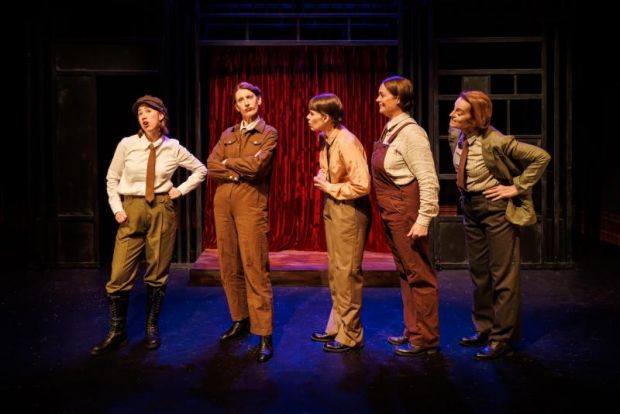
Janice Muller’s direction is slick, kinetic & economic. She directs and choreographs her lively, appealing, chameleon all-women cast. All except diminutive Madelaine Nunn (Alice Anderson really was diminutive) play multiple roles – male and female: the mechanics, of course, but also Alice’s Mum, local folks, customers, the blokes who laugh at Alice, and the blokes who intimidate and try to shut her down. The mechanics (Carolyn Bock, Candace Miles, Anna Rodway), wear brown coveralls, while Helen Hopkins, in jacket and tie, plays the different male roles (Father, Alice’s first customer) with authority, charm and great comic timing.
It’s all deliberately ‘theatrical’. Central is a tiny stage with red velvet curtains, flanked either side by Sophie Woodward’s ingenious, adaptable, moveable scaffolding style set that can be the workshop, vehicles in motion or the vast outback when Alice drives a Baby Austin all the way to Alice Springs. Gina Gascoigne’s lighting is extremely inventive, creating mood, transitions and driving the rapid pace storytelling.
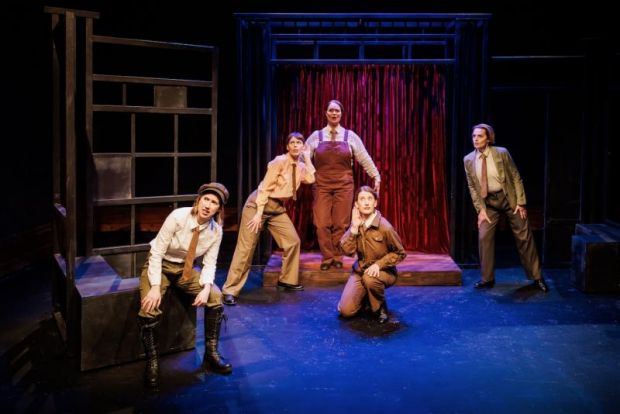
Garage Girls is first and foremost a deserved celebration of the historical Alice Anderson; it’s both a biographical piece and very entertaining feminist agit-prop that uses brisk narration, comedy, swift scene changes and clever, funny tableaux to tell its story. It’s unmistakably driven by the broad strokes character of Alice who comes across here as a sort of Eveready Bunny, always working, never discouraged, never stopping – until we might wonder if there might be more to her – apart from her love of poetry which suggests an inner life, but goes no further.
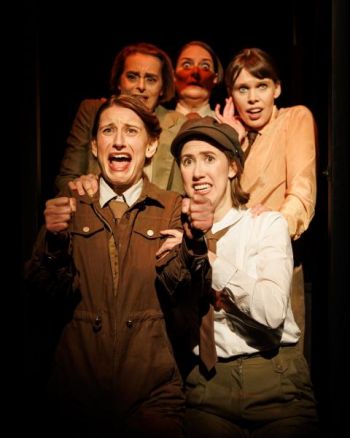
Curiously, once the story gets away from Miss Anderson’s Motor Service - and thus the lively interactions and varied modes of presentation - the show, while still ‘true’, begins to drag a little. As can too often be the way with theatrical or screen versions of the ‘true story’ of a real-life figure, Garage Girls falls into the trap of trying to pack in as much of the life as possible. That is, incidents that happened and people who were really there are ‘covered’ but en passant. Thus we get set-ups that don’t pay off. Did the thugs who try to shut Alice down just give up when she stood firm? Why did the garage eventually fail and close? Most interesting is Jessie (Anna Rodway) the woman who accompanies Alice on the adventure to the Outback. Alone under the stars, Jessie comes as near as can be to declaring her love for Alice – but Alice goes blank - either because of the period in Australia, or she’s scared, or she just doesn’t get it, her sexuality repressed beneath her restless, go-getter ambition. I’m assuming this particular incident is inference or invention. Either way, it’s the most emotional and moving scene in the play – while being quite frustrating too. Once this love affair that never happened is ‘covered’, the show moves on…
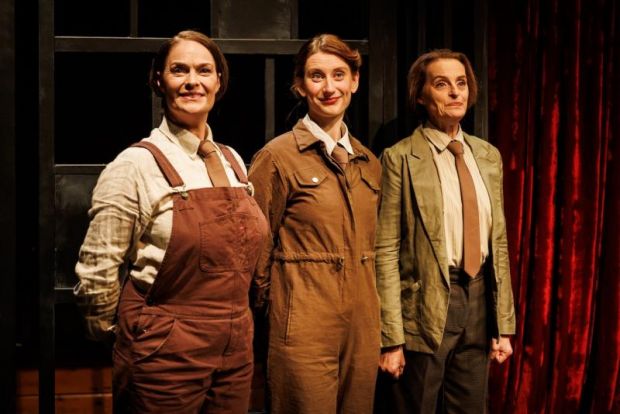
Garage Girls is included in the 2024 VCE Education Playlist for Drama – even though, nowadays, we know (or do we?) that women can do anything, much to the evident chagrin of many men. This play’s depiction of a woman who trespassed on a very male domain is still necessary – and in this presentation great fun too. If agit prop is your thing, this is the way to do it.
Michael Brindley
Photographer; Darren Gill
Subscribe to our E-Newsletter, buy our latest print edition or find a Performing Arts book at Book Nook.

